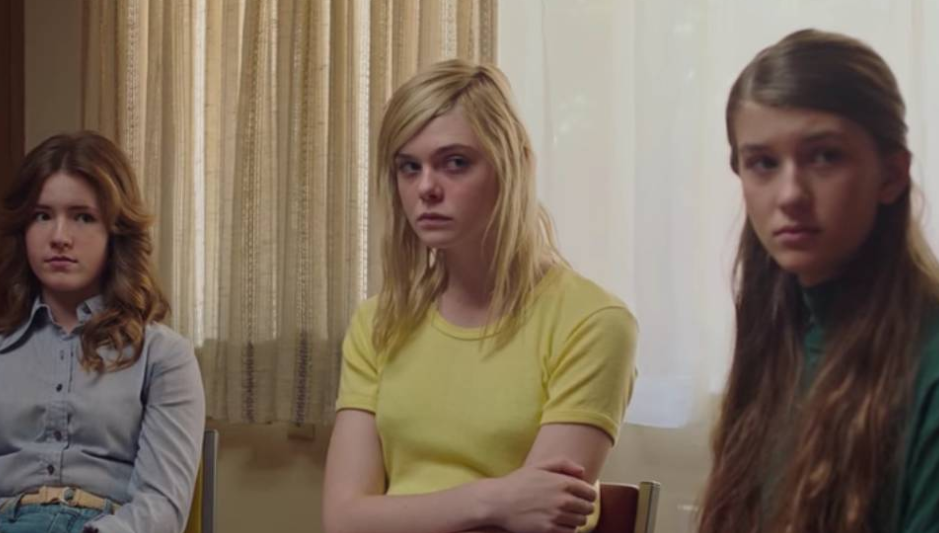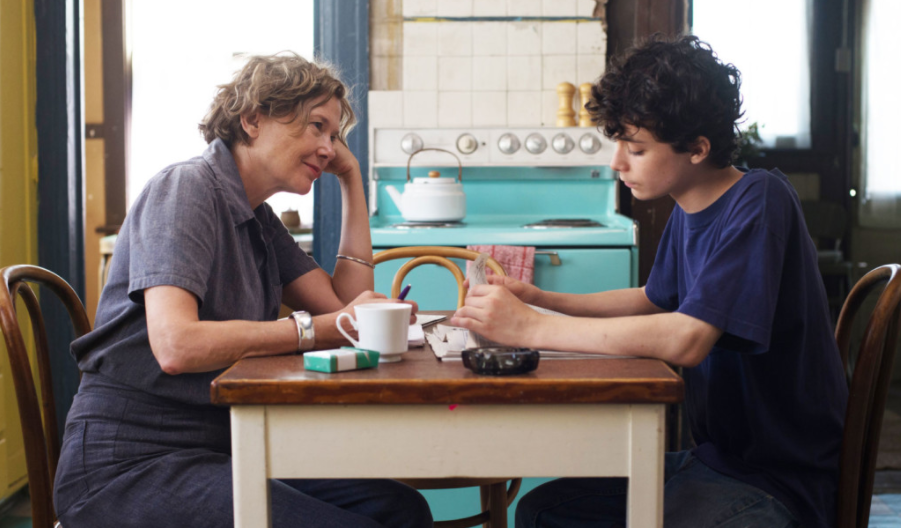Annette Bening was widely considered a snub when she did not pick up a nomination for 20th Century Women at this year’s Academy Awards, but director Mike Mills did make the Oscar shortlist for his original screenplay. That seems appropriate for a personal story that belongs more to Mills than it does to Bening, as it’s based in part on the writer-director’s childhood in an impeccably recreated Santa Barbara, circa 1979. Mills has also found quite a talented young actor to play the character based on himself, as 20th Century Women suggests we should be seeing plenty more of newcomer Lucas Jade Zumann.
As can sometimes be the case with memoir, Mills’ film is actually a bit shaggy in the plotting, making that Oscar nod more an acknowledgement of his fertile exchanges and rich dialogue than any achievement with structure or the mechanics of narrative. Knowing Mills sees himself in the character of Jamie, a teenager living in a boarding house run by his mother (Bening), one would be tempted to identify him as the main character. But there’s a reason this film is called 20th Century Women, as it is perhaps most overtly interested in Bening’s chain-smoking divorcee, Dorothea, and two progressively younger women who are also in Jamie’s orbit: Abbie (Greta Gerwig), a photographer recovering from cervical cancer, and Julie (Elle Fanning), a neighbour a few years older than Jamie who awakens his budding sexuality by sleeping in his bed – but only platonically.

Concerned that her son doesn’t have anyone fulfilling the role of a father, Dorothea bypasses the obvious candidate, a mechanic also living in the boarding house called William (Billy Crudup), and enlists Abbie and Julie to bring a tag team approach to filling in the inevitable gaps in what Dorothea can provide. In the absence of a mother and a father, perhaps three mothers, one of whom is only two years Jamie’s senior, will suffice. To underscore the idea that this is about all of them, each character provides narration at different points in the story.
Mills’ approach to the material is clear-eyed yet vaguely wistful, as he indulges in probably half-remembered snippets from his own childhood, in which he danced at parties thrown by people ten years older than him, to punk music that was on the verge of cultural extinction. There’s a real specificity to the late 1970s California captured here, as the set design is precise without seeming fussy, and feels lived in. Mills possesses Wes Anderson’s fondness for the fetishized object, sometimes presenting snapshots of a particular scene, almost like a lawyer or a scientist offering exhibits or specimens for our consideration. It’s something we saw in his previous film, Beginners, in which he regularly expressed a comedic fondness for the small absurdities, and sometimes tragedies, of life.
He clearly knows how to director actors, too. Christopher Plummer won an Oscar for Beginners. Bening could not duplicate the feat, but hers may not even be the film’s best performance. That honour might be reserved for Elle Fanning, who at age 19 already seems to have earned enough praise in her career for several Oscar nominations.

She continues to explore new dimensions of her range in this movie. Her age-appropriate cohort, Zumann, brings his own fresh-faced presence at age 16, really finding the nuances in a role that’s perhaps trickier than it originally appears. Bening, the veteran, actually has a few moments that seem awkward, though they may only register as such because of the way Dorothea withholds, almost like she’s reading every situation before responding. More often, Bening brings to bear the wisdom of her 30 years in the movies, a fiftysomething actress who has never been afraid to play her age.
One of the most interesting aspects of this movie is the way it has a little something for everybody. While it’s quite clearly a coming-of-age story in most respects, it also crawls inside the brain of the mother trying to bring that boy of age, and of two women who are each trying to define themselves in a world whose perspectives on women are constantly evolving. It grapples with life and death, sex and love, and wraps it all up inside a breezy package that feels like a shout from an age gone by, lost on the wind.